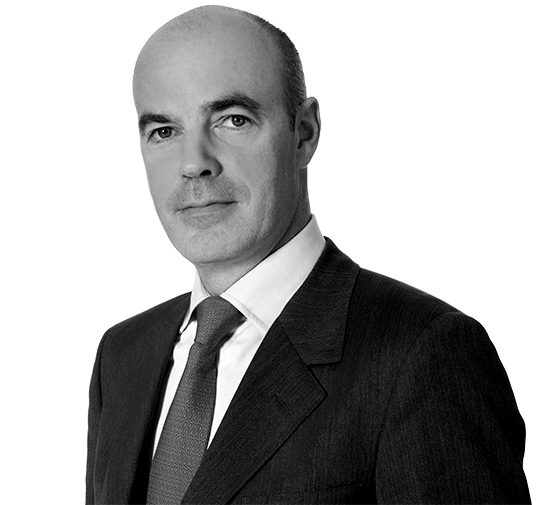Competition Watchdogs Increase Scrutiny of Private Equity Takeovers

U.S. competition regulators are promising to take a closer look at private equity takeovers, looking more broadly and deeply at acquirers’ impacts on companies and industries. The trend is coming to Europe with antitrust authorities also showing their desire to make their mark and demand stronger remedies than might have previously been the case. Sponsors must do more work to assess the impacts of potential deals on competition internationally and consider the remedies they may be prepared to offer to smooth the path of acquisitions.


Regulators Talk Tougher and Promise Stronger Action
U.S. antitrust regulator Lina Khan took over as chair of the U.S. Federal Trade Commission (FTC) in 2021 with a reputation as a critic of Big Tech. In recent months, Khan has turned her attention to private equity, asserting that there are “life and death consequences” for care homes taken over by buyout firms, and urging the agency to look at the aggregate industry picture when assessing even relatively small transactions. Furthermore, she argued that regulators should be “sceptical” when looking at sponsor deals for company carve-outs created by two large corporates merging1 . Her comments echo those of Jonathan Kanter, the head of the Department of Justice’s antitrust unit, who has also questioned how private equity can “roll up” certain industries, building share through a number of acquisitions2.
Rhetoric alone can have an impact on markets. By promising to take a tougher stance, regulators may be hoping to influence potential acquirers. However, the FTC has also been taking some concrete actions. The regulator demanded that JAB Consumer Partners – an investment vehicle from the holding company for Germany’s Reimann family – dispose of vet clinics in Texas and California to prevent the formation of alleged local monopolies as part of its proposed $1.1bn takeover of U.S. pet healthcare group SAGE Veterinary Partners.
Requiring divestitures in this industry is not new – the FTC required Mars to divest 12 veterinary clinics when it acquired VCA in a $9.1bn deal in 20173. However, the watchdog is also demanding that JAB provide the FTC with prior notice of any planned acquisitions within 25 miles of an existing clinic in California or Texas for the next ten years4, a measure it claims is a first.
Europe is also seeing its regulators take a more aggressive stance. In March 2022, the UK’s Competition and Markets Authority (CMA) blocked a merger between Cargotec and Konecranes, two Finnish companies supplying cargo handling equipment and services in ports, shipyards, and terminals around the world. The move came after both the European Commission (EC) and CMA opened Phase 2 investigations into the deal and found that the merger of the two main suppliers in a range of cargo handling equipment would ultimately harm competition in the market.
The EC accepted a remedy proposal for the two firms to carve out separate divestiture packages to be sold to a single purchaser and approved the merger in February 2022. However, the CMA later found the same package to be insufficient and prevented the merger from moving forward, with the deal being abandoned shortly afterwards.
As it looks to put its stamp on European competition scrutiny, the CMA launched an investigation into practices in the music streaming industry earlier this year.




Regulators Talk Tougher and Promise Stronger Action
U.S. antitrust regulator Lina Khan took over as chair of the U.S. Federal Trade Commission (FTC) in 2021 with a reputation as a critic of Big Tech. In recent months, Khan has turned her attention to private equity, asserting that there are “life and death consequences” for care homes taken over by buyout firms, and urging the agency to look at the aggregate industry picture when assessing even relatively small transactions. Furthermore, she argued that regulators should be “sceptical” when looking at sponsor deals for company carve-outs created by two large corporates merging1 . Her comments echo those of Jonathan Kanter, the head of the Department of Justice’s antitrust unit, who has also questioned how private equity can “roll up” certain industries, building share through a number of acquisitions2.
Rhetoric alone can have an impact on markets. By promising to take a tougher stance, regulators may be hoping to influence potential acquirers. However, the FTC has also been taking some concrete actions. The regulator demanded that JAB Consumer Partners – an investment vehicle from the holding company for Germany’s Reimann family – dispose of vet clinics in Texas and California to prevent the formation of alleged local monopolies as part of its proposed $1.1bn takeover of U.S. pet healthcare group SAGE Veterinary Partners.
Requiring divestitures in this industry is not new – the FTC required Mars to divest 12 veterinary clinics when it acquired VCA in a $9.1bn deal in 20173. However, the watchdog is also demanding that JAB provide the FTC with prior notice of any planned acquisitions within 25 miles of an existing clinic in California or Texas for the next ten years4, a measure it claims is a first.
Europe is also seeing its regulators take a more aggressive stance. In March 2022, the UK’s Competition and Markets Authority (CMA) blocked a merger between Cargotec and Konecranes, two Finnish companies supplying cargo handling equipment and services in ports, shipyards, and terminals around the world. The move came after both the European Commission (EC) and CMA opened Phase 2 investigations into the deal and found that the merger of the two main suppliers in a range of cargo handling equipment would ultimately harm competition in the market.
The EC accepted a remedy proposal for the two firms to carve out separate divestiture packages to be sold to a single purchaser and approved the merger in February 2022. However, the CMA later found the same package to be insufficient and prevented the merger from moving forward, with the deal being abandoned shortly afterwards.
As it looks to put its stamp on European competition scrutiny, the CMA launched an investigation into practices in the music streaming industry earlier this year.
Preparing for Private Equity Deal Scrutiny
With regulators promising and delivering more scrutiny, private equity acquirers operating in Europe must be prepared to do more extensive due diligence into antitrust issues and consider what remedies they can offer. Sponsors need to look closely at other assets in the same fund and even predecessor funds for any competitive overlap with the target company. They must also consider the competitive dynamics at a national and EU level, to understand the strength and position of other players in the market.
Given the tougher stance being taken by competition watchdogs, many jurisdictions are likely to demand disposals rather than undertakings. However, buyers should also take care when proposing remedies as there is a risk that they could signal willingness to do more than the regulator might have demanded. In many jurisdictions, buyers can have a dialogue with regulators in which they are able to understand competition concerns and seek to allay those fears before the deal is completed.
Providing the Right Reassurance for Sellers
More stringent competition enforcement does not only affect acquirers of assets. Sellers may want to consider more closely the relative merits of bidders and give more attention to risks of antitrust action against private equity buyers.
Seller friendly terms, such as “hell or high water” standards are designed to give maximum comfort to the seller by obliging the buyer to accept any remedial measures a regulator might demand. While some buyers are prepared to accept such terms unamended, they may present an unacceptable risk to others in a changing, competitive environment.

Michael J. Preston
Partner
London
T: +44 20 7614 2255
mpreston@cgsh.com
V-Card
Gabriele Antonazzo
Partner
London
T: +44 20 7614 2353
gantonazzo@cgsh.com
V-Card
Michael James
Partner
London
T: +44 20 7614 2219
mjames@cgsh.com
V-Card
Paul Gilbert
Partner
United Kingdom
UK Core PE Group:
Extended Private Equity Practice:
Italy
Italian Core PE Group:
Extended Private Equity Practice:
France
French Core PE Group:
Extended Private Equity Practice:
Belgium
Belgian Core PE Group:
Extended Private Equity Practice:
Germany
German Core PE Group:
UAE

































